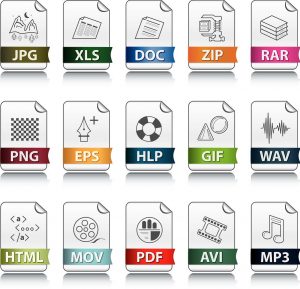Remember the old days, when eDiscovery involved searching email servers, PCs and shared folders on the network? Mobile technology has changed all of that. Traditional collection methods prove woefully insufficient to address the complexities of today’s information environment. Legal teams must stay up to date to meet mobile eDiscovery challenges.
Studies show that 90 percent of today’s workers use mobile devices to conduct business. They check email on their smartphones, handle sales meetings from a laptop or carry out business conversations through messaging. Any of this information may prove relevant in the case of litigation. But several factors make collecting and processing that data challenging.
Complex BYOD Environment
Many companies have adopted bring your own device (BYOD) policies. These policies save money in device costs, and employees see the practice as a key job benefit. But reduced technology expenses and increased employee productivity come at a cost. In addition to data security concerns, BYOD policies introduce significant complexities to eDiscovery.
One key concern involves the difficulty of separating personal and business information. For instance, an employee may use her tablet for editing both personal and business documents. She may also message friends and clients using the same application. eDiscovery professionals must then determine which data will prove relevant.
Additionally, BYOD devices introduce significant privacy issues. In the absence of clear mobile policies, it can prove challenging to sort through questions of data ownership and control. Legal teams need to produce responsive content while preserving fourth amendment privacy rights.
Varied File Formats
 Consider all the various file formats on your smartphone right now. You likely use multiple applications for messaging, from native messaging apps to Messenger, Zoom and Marco Polo. In addition, you probably use word processing and notes apps, multimedia and social networking.
Consider all the various file formats on your smartphone right now. You likely use multiple applications for messaging, from native messaging apps to Messenger, Zoom and Marco Polo. In addition, you probably use word processing and notes apps, multimedia and social networking.
This plethora of file formats represents one of the greatest mobile eDiscovery challenges and necessitates multiple collection tools and methods. In addition, files may require conversion to other formats for assessment. All of this increases the cost of eDiscovery, as well as the time involved.
Social Media and Cloud Storage
Social media can prove a valuable source of evidence for litigation, and mobile devices provide key access points to both social media and cloud storage. For instance, the right tools can retrieve even deleted or edited posts. Likewise, a mobile device may include evidence of the location of uploaded documents relevant to a case.
However, although social media and cloud storage may include pertinent details, the process can prove complicated. For example, while the legal team can easily take a screen shot of social media posts, the screen shot does not include the associated metadata necessary to prove authenticity. Specialized collection tools capture necessary data but can prove costly.
Frequent Technology Updates
Mobile technology changes at a rapid pace. To begin with, most cell phone providers allow users to upgrade their phones every two years. Additionally, vendors provide software updates to the OS and mobile apps on a regular basis.
Collection tools must keep pace with the ever-changing technology landscape. An eDiscovery project may include dozens of different cell phone models involving many different software versions. No single tool will cover all those device configurations.

Finding Solutions to Mobile eDiscovery Challenges
As mobile eDiscovery challenges grow more complex, organizations face limited timeframes to gather evidence that will give them the upper hand in litigation. But a proactive approach to information governance can help.
Involve legal counsel early on when crafting policies governing the use of mobile devices. In addition, leverage the expertise of technology partners. Messaging Architects brings a wealth of experience in both information governance and eDiscovery to help you manage mobile resources efficiently.







